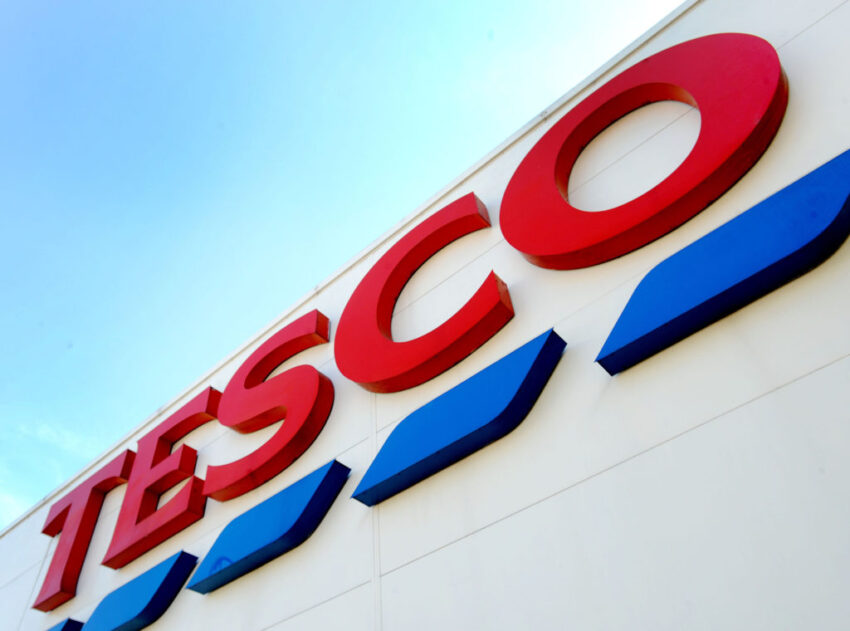News of Tesco’s accounting scandal sent shockwaves through the City in 2014 and raised serious questions over how a FTSE 100 firm could get away with “cooking the books”.
The grocery giant issued a series of profit warnings in the run up to the September announcement about overstated profits, as the group reeled under the disastrous reign of then-chief executive Philip Clarke.
Mr Clarke, who left the retailer just before the scandal, presided over a tumultuous period for Britain’s biggest retailer, in which market share slumped as Tesco came under pressure from discount rivals Aldi and Lidl.
The bombshell disclosure came on September 22, when the company admitted that issues uncovered in its UK food business meant it was likely to have overstated profits by £250 million.
The disclosures wiped £2 billion off the supermarket’s share price in one day, and the overstatement was later revised up to £326 million.
Tesco ordered an immediate review into the errors, undertaken by Deloitte and law firm Freshfields, but the damage had already been done.
Tesco suspended eight directors and the Serious Fraud Office (SFO) charged three former executives – Carl Rogberg, Chris Bush and John Scouler – with fraud after the black hole was discovered.
To compound matters, the scandal contributed to Tesco’s £6.4 billion loss in 2015, one of the largest in corporate history.
In 2017, Tesco reached an agreement with authorities over the scandal that saw it pay £85 million in compensation payouts to investors and £129 million in fines and costs.
The Deferred Prosecution Agreement (DPA) with the SFO saw the company escape prosecution but book a total hit of £235 million.
The agreement came as Britain’s financial watchdog, the Financial Conduct Authority, concluded that Tesco had committed market abuse.
Although Mr Clarke was spared charges linked to the scandal, Mr Rogberg, Mr Bush and Mr Scouler – the former finance chief, managing director and food commercial head – faced a lengthy court case that eventually began in 2017.
They stood accused of being involved in a “white-collar crime” plot and were charged with fraud by abuse of position and false accounting.
After the initial trial collapsed, a retrial date was set for October this year.
The jury was told the case was a retrial and that Rogberg was charged with identical offences but was not currently well enough to stand trial.
A decision will be made in due course about what action should be taken in relation to Rogberg following the acquittals of Mr Scouler and Mr Bush.
All three maintained their innocence.

Dave Lewis, Mr Clarke’s successor as Tesco chief executive, has attempted to move the group on from the scandal.
He has said the firm is doing everything possible to “restore trust” after seeing the brand suffer.
He said last year: “What happened was a huge source of regret to all of us at Tesco, but we are a different business now.
“The decisions over the last years are evident to all and the job now is to keep this momentum.
“I am pleased with how our colleagues have responded and that has allowed us to rebuild the business since 2014.
“The brand was affected by the announcement back in 2014, that is clear.
“I think everyone will recognise that there is nothing here to be proud of, but I am proud that we faced into it.
“The situation was real and I hope people will respect Tesco for facing a difficult situation and dealing with it in the manner in which it has.”
Mr Lewis appeared in court in October, where he told of his “genuine shock” on learning of the company’s overstated profits.
Who are the acquitted men?
John Scouler and Christopher Bush have now been found not guilty of the charges against them.

Chris Bush
Managing director at the time of the scandal, Chris Bush was a Tesco veteran with a 30-year association with the retailer.
He was appointed managing director in January 2013, about a year and a half before the supermarket admitted that it had over-estimated profits by around £250 million.

John Scouler
Tesco’s former food commercial head, John Scouler joined the grocer in 2002, having previously spent eight years with Kraft.
Since leaving in December 2014, the year of the scandal, he has become managing director of consumer business at TalkTalk.


